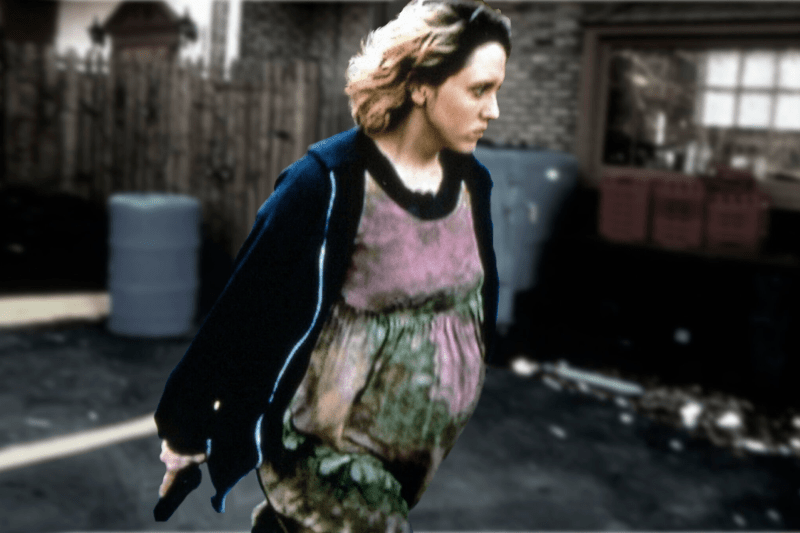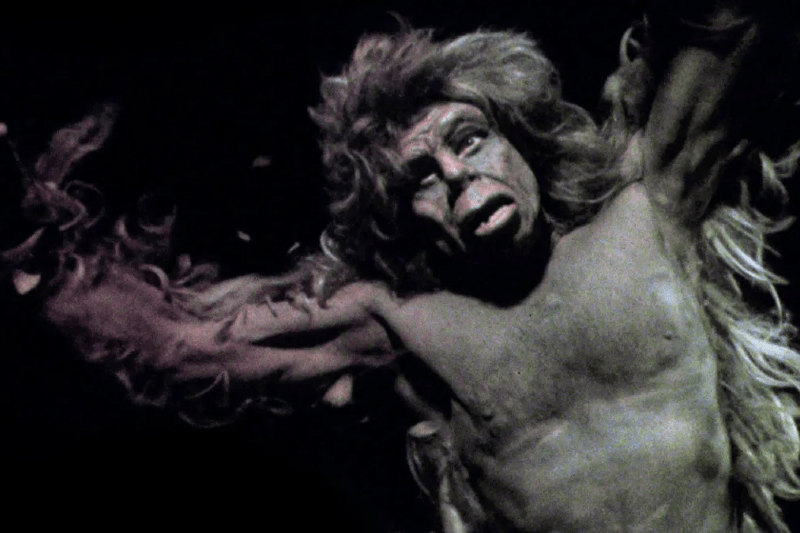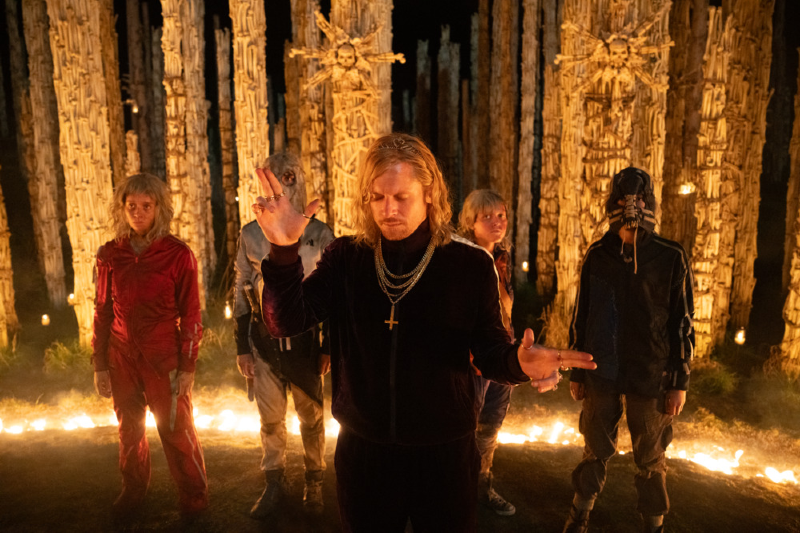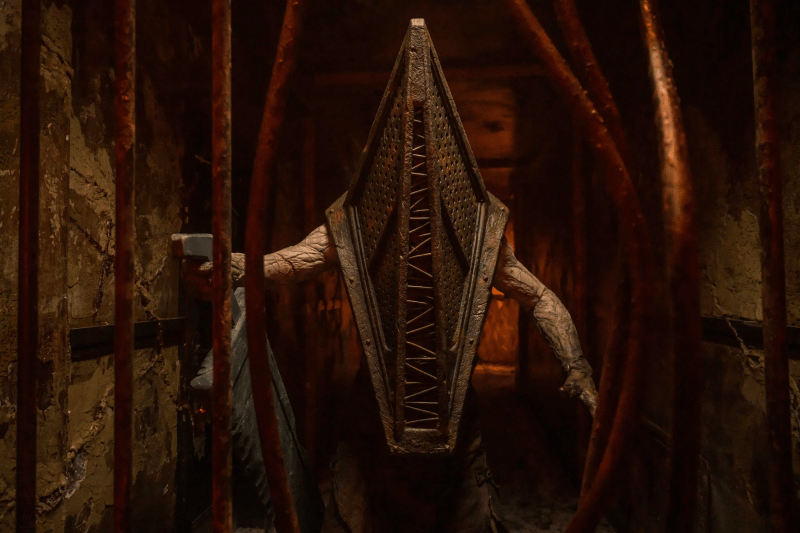If asked to choose the most upsetting moment of my reality television career, firmly at the top of the list would be the day on the model competition show (not that one) when contestant Janet (pseudonym) had a psychotic break during panel and stripped off all her clothes save for the mic belt around her waist. Everyone – the judges in the studio, the production staff in the booth, the terrified fellow contestants mere feet away from her on the stage – watched in horror as Janet launched into a rapid-fire, stream-of-consciousness monologue about the nature of reality in the context of filmed entertainment.
We’d driven that young woman to madness – and it aired, uncut, six months later.
I spent a solid decade working in reality TV. I’ve seen some shit, and I can state with authority that Daniel Minahan has done his homework. Series 7: The Contenders, his feature film recreation of a reality competition series, is spot on in format – and quite frankly, not that far off in content.
The film unspools as a three-episode marathon leading to the season finale of The Contenders, a fictitious game show with the ultimate stakes — your life. Set in an undefined (presumably alternate) timeline, and rolling out like Road Rules: The 10th Victim, The Contenders features contestants who are chosen by lottery, handed a gun, assigned a field producing team, and set loose on each other until the best man or woman wins. Of the five “real people in real danger,” the main character is Dawn (Brooke Smith), the pregnant two-time winner of the show, who must outlast four more contestants before she’s free to go.
Oh, but what’s that? Her gay ex-boyfriend is also a contestant? The satire is bone-dry; the execution is picture-perfect.
“I think it came out too late,” replied producer Christine Vachon when asked in 2001 if the film had been released in time to capitalize on the current reality TV boom. “I think that’s why it tanked… I think it came out when there was a sense already that Survivor was over and this kind of television was over.” For Vachon, the co-founder of Killer Films who is known as a producer with a canny eye for nuanced material, this was a rare moment of non-prescience. Although reality TV may have felt like a genre that had reached peak garbage fire status when the film was birthed, time would prove Vachon quite wrong.
To understand the context in which Series 7: The Contenders was released requires a quick lesson in the origin of reality television. An American Family, the fly-on-the-wall series that chronicled the disintegration of the titular Loud family, is commonly credited as the first reality TV show. By the 1990s, we were firmly in an era of easily consumable “unscripted” programming, including endurance game shows like Survivor; the An American Family progeny, The Real World; and manhunt shows like America’s Most Wanted and Cops.
Then, on February 15, 2000, Darva Conger married Rick Rockwell, a man she’d never met, on television after competing in a beauty pageant for which he was the sole judge. The aftermath of Fox’s two-hour special, Who Wants to Marry a Multi-Millionaire, was spectacularly messy. The networks immediately reevaluated their reality slates, shying away from anything that felt too manipulative or morally suspect.
For a sliver of a moment, reality TV seemed a chastened industry, perhaps a waning fad, and the presumed backdrop for Series 7: The Contenders’ release – a genre whirling out of control, headed to the ultimate contest – evaporated. Starving people on an island was still permitted, but Survivor took great pains to communicate that everyone involved understood the risks, and that eating bugs and shitting in the ocean was an opt-in game. Unscripted content had pushed the genre to the far limits of what was possible and acceptable… at the time.
If history had stopped in 2001, Vachon would have been correct in her assessment. But time marched on, and upon further review, maybe Series 7: The Contenders wasn’t released too late. Maybe it was released too early.
The key to successful satire is how closely the piece hews to reality, reflecting an almost perfect image with one devastating revision that reveals an even more devastating truth. In 2001, a show about the government forcing people to kill each other on TV would have been mercifully far from reality. A premise that, on its face, seemed too silly; an unserious step too far to enjoy in the context of satire, either of the medium or of where we were as a society.
Our parasocial bloodlust as a species hadn’t been unlocked to a sufficient degree at the time of Series 7’s release, but that would change. Back in 2001, rooting for Dawn was difficult. Yes, she was doing what needed to be done for her unborn baby. But she wasn’t horrified at her participation on The Contenders. She showed no remorse. She’s calm, nonchalant, chatty. In the opening scene of the film, when Dawn eliminates a contender in a convenience store, we see a split-second grimace as she pulls the trigger – but as soon as her victim is on the ground, she takes a moment to do some shopping.
Throughout the three episodes, Dawn shows no sign of trauma caused by her two previous seasons as the star of a murder game show. The only time we see affection is in her interactions with her ex-boyfriend, fellow contender Jeffrey (Glenn Fitzgerald), who is dying of cancer. (suicide is against the rules, so Dawn kindly agrees to give him a painless overdose.)
But social media (a convenient but justified whipping boy when analyzing these things) and cable television (ditto) continued to blossom, creating more real estate for a darkness to creep in. Facebook, YouTube, and Twitter would all launch in the next four years. “Caught on tape” became a mantra for inexpensive, highly profitable clip shows and subscription websites. To this point, the only aspect of Series 7 that anchors the film in the past is the public’s reaction to the spectacle of the show. At one point, Dawn and the other contestants are lured to a mall where two of the contenders are killed in full view of the shoppers. Not a single person pulls out a phone to record the incident – camera phones were a decade away from widespread usage.
We’re currently experiencing a media renaissance much like during the Vietnam War, fought in our living rooms courtesy of the nightly news, but now to scale. We live in a world where everyone has a camera in their hand at all times, the news is 24/7, and the social media companies feed us atrocities morning, noon, and night. Reality TV is playing catch-up to the Internet. The idea of a show about the government forcing people to fight for their lives feels just on the other side of a very thin wall. How difficult a task is it to imagine a stand-your-ground mom taking Dawn’s place with the promise of TV fame and a Presidential pardon?
After investing in Dawn and Jeffrey’s story for three episodes (kudos to the imaginary story producers for nailing all the emotional beats), the audience (us, not the presumed audience in the world of The Contenders) are yanked out of the narrative by a re-enactment of what we’re told are their final moments. Two re-enactors sub in for our anti-heroes, and their fate is what you’d expect.
Minahan obviously wanted the audience to feel betrayed by the entity controlling The Contenders, implying that Dawn and Jeffrey were either successful in escaping the clutches of the show or murdered by production to prevent them from “winning.” There are hints throughout the film that the producers aren’t playing fair with the contestants (someone suffers a “self-inflicted stab wound to the back”), which I’m ashamed to tell you, based on personal experience, is one hundred percent accurate.
(On the previously referenced model show, we worked the contestants to exhaustion, fed them on an irregular schedule, and stocked their condo with as much booze as they could drink. Apologies to Janet.)
Dawn and Jeffrey are robbed of their moment, and so are we. If I were to find fault with Series 7: The Contenders, I would point to Minahan swapping out the original ending with this re-enactment trope. (Smith opines during her interview on the incredibly stacked DVD that she, too, is disappointed in the swap.) Thankfully, the original ending is also included as one of the deleted scenes on the DVD, so viewers are offered the opportunity to judge for themselves.
As Minahan originally envisioned, Dawn and Jeffrey take a movie theater audience hostage, then successfully force the powers-that-be to not only let them both live, but to live freely. The two exit the theater, but the gathered crowd won’t have that – the social contract in this alternate timeline is that there must be blood. And so, they take it. The crowd descends on Dawn and Jeffrey in a rage and literally tears them apart.
Devastating, but the ending the film requires to truly be of the moment. We are where we are, inches from the boundary that separates us from the satire of the piece, and the film deserves another look now that we’re here. And yet… I fear we are headed past the point where Series 7: The Contenders remains fiction. Perhaps Christine Vachon will be right, yet again.







